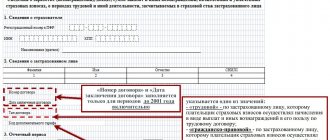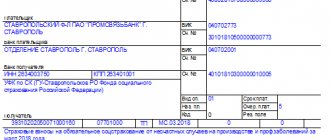It's easier to warn than to return
The procedures for offset and return of overpayments on insurance premiums during the transition period - since 2020, all such payments except “traumatic" ones are regulated by the Tax Code of the Russian Federation - provide for the need to comply with many conditions that are not entirely convenient for payers.
The type of contribution and the period when the overpayment occurred will determine which agency to contact, as well as in what order to act and in what form to write the application. However, in all cases, it will be necessary to reconcile settlements with the Federal Tax Service to eliminate discrepancies between the amount indicated in the application and the data on the personal account (account) of the participants in the procedure. Therefore, the organization must have all documents confirming the overpayment.
The accountant will have to carefully prepare for the multi-stage procedure for the return or offset of contributions, regulated by numerous norms of Federal laws and the Tax Code of the Russian Federation. Therefore, it is much more profitable, in principle, not to make mistakes in calculations, so as not to waste working time on correcting a situation in which the tax authorities, by the way, may not meet you halfway.
By outsourcing payroll calculation to 1C-WiseAdvice, you can be sure that your company will not have overpayments associated with erroneous calculations and other gaps in the accounting department.
https://youtu.be/TifevQSmMNs
Refund of overcharged amounts
The question of how to return overpayments on insurance premiums should not cause any difficulties: the return algorithm is the same as for taxes.
As before, as a general rule, the overpayment of insurance premiums in 2020 is offset against the corresponding fund budget against future deductions of this contribution, as well as debts for the corresponding penalties and fines for tax offenses.
Refunds of overpayments under compulsory medical insurance and compulsory medical insurance for the period before 2020 are carried out according to the old rules on the basis of documents drawn up according to the old forms. In this case, it is necessary to contact the bodies of extra-budgetary funds, which are the pension fund and the social insurance fund.
If you have overpaid contributions both before 2020 and after. Then you need to contact two different authorities with different sets of documents. The reason for this is a change in control bodies over insurance premiums due to the workload of funds.
The amount of overpaid insurance premiums, penalties and fines is subject to offset against the relevant budget in which this amount was credited, against upcoming payments of contributions, arrears of penalties and fines, or return to the payer of contributions (clause
1. 1 and 14 art. 78 Tax Code of the Russian Federation).
To offset and refund the overpayment, you should contact the tax office1. But these rules apply only to contributions for periods starting from 2020.
See the article “Getting to know the unified calculation of insurance premiums”
If the FSS excessively collected insurance premiums, penalties or fines from the organization, then this money can be returned. The refunded amount will be reduced by the amount offset against the debt on penalties and fines for late (incomplete) payment of insurance premiums (if there is such a debt).
Reasons for overpayment of contributions
To return or take into account an overpayment of insurance premiums, you first need to determine why and in what period it arose. The order of further actions depends on this.
For example, an overpayment may occur:
- If the insured event occurs at the end of the year, it is possible that an overpayment will occur by the end of the period. This happens especially often when calculating maternity leave, as well as child care benefits up to 1.5 years.
- Due to incorrect determination by the payer of the taxable base and tariffs of insurance premiums.
- Due to an error in calculations and when filling out a payment order.
- If the tax authorities collected insurance premiums on demand, and the company simultaneously repaid the existing debt.
It is impossible to compile an exhaustive list of such situations, since much depends on the specifics of the business, the specifics of the tariffs used and the company’s accounting policies, and the degree of competence of the accountant.
The fact of excessive payment of contributions can be detected by the payer himself or the Federal Tax Service.
More details
Overpayments and arrears that arose before January 1, 2020
Overpayments incurred before January 1, 2020 can only be refunded. This can be done provided that:











